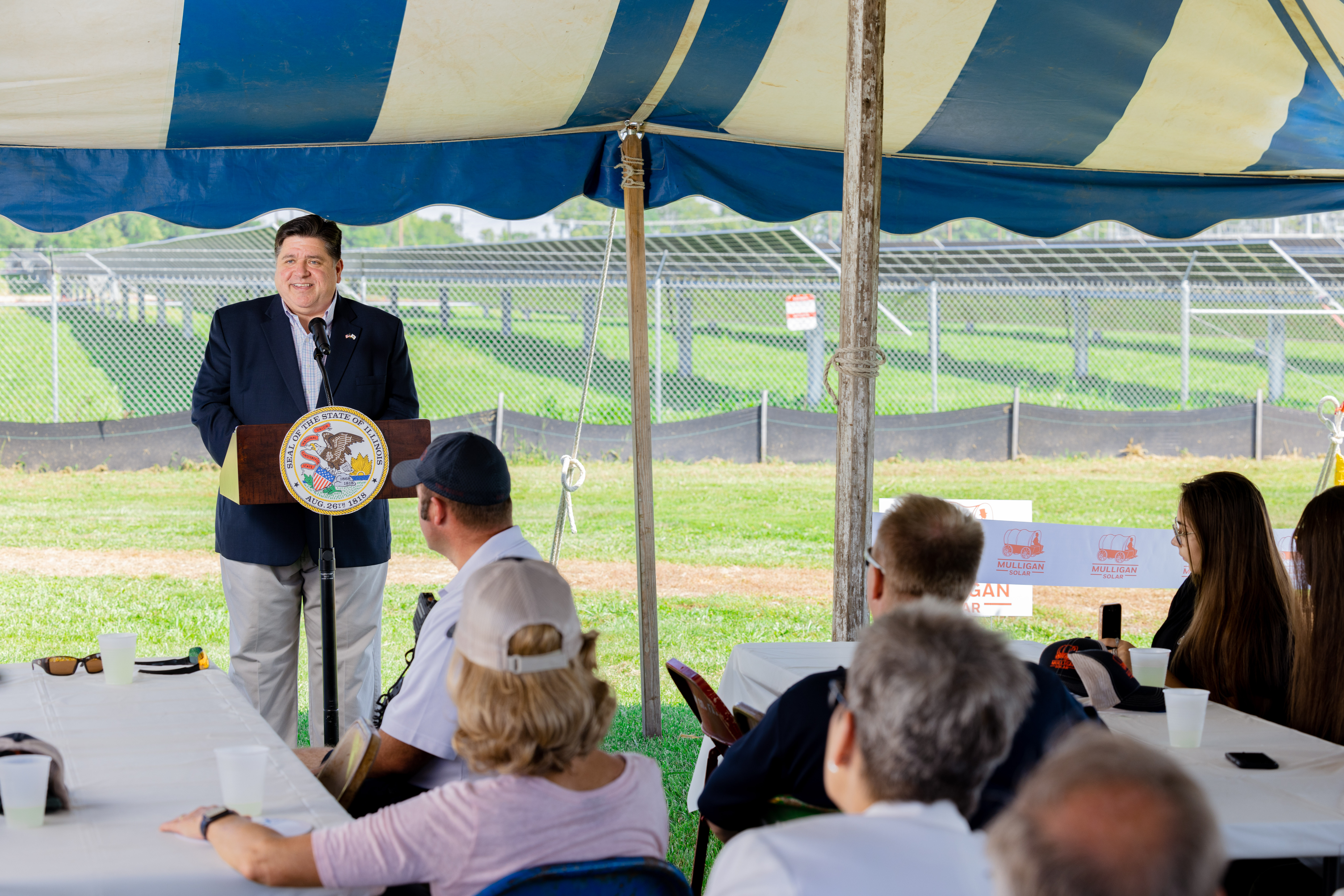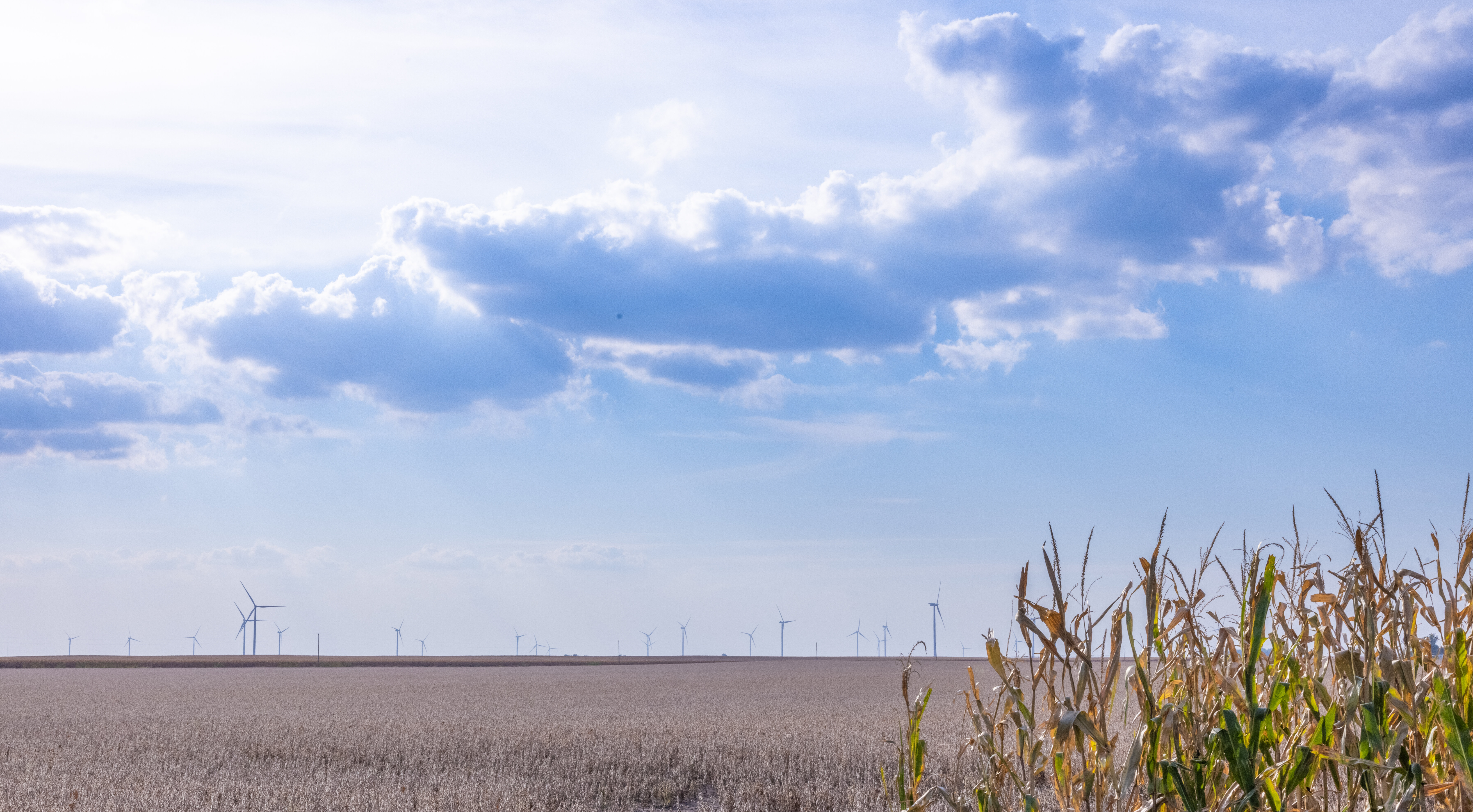Transforming the Prairie State’s Energy Landscape
A Conversation with the Illinois Power Agency

In recent years, Illinois has emerged as a leader in the energy transition, establishing ambitious climate targets, rapidly expanding its wind capacity, and leading the Midwest in installed solar capacity. In this Q&A, Brian Granahan, acting director of the Illinois Power Agency (at right), speaks with Chris Kunkle, senior director of state affairs at Apex Clean Energy, about the IPA’s pivotal role in this transformation. Granahan discusses the intricacies of managing the Renewable Portfolio Standard, implementing innovative procurement strategies, balancing ambitious goals with practical implementation, and the IPA’s comprehensive approach to renewable energy—from utility-scale projects and community solar initiatives to equity-focused programs. Looking to the future, Illinois is setting a precedent for other states to follow as they navigate the complexities of the evolving energy sector.
The Illinois Power Agency plays a critical role in achieving the climate, clean energy, and equity goals of the state of Illinois. Can you describe those goals and how the IPA interfaces with them?
Specific to renewable energy, the IPA is responsible for ensuring that Illinois electric utilities meet a steadily increasing portion of retail electric sales through renewable energy via the purchase of renewable energy credits (RECs): 40% by 2030 and 50% by 2040 under the Illinois renewable portfolio standard (RPS). RECs are procured through a combination of solar incentive programs to support smaller-scale solar development and competitive procurements to support the development of utility-scale wind, utility-scale solar, and brownfield site photovoltaic projects. To meet the goals of creating an equitable solar workforce, the IPA has a dedicated program category for projects developed by equitable eligible contractors; minimum equity standards applicable to the workforce for projects across programs and utility-scale developments; and preferences for the use of higher levels of equity-eligible contractors and persons in competitive procurements. Given the ambition of these initiatives and the need for specialized knowledge and experience, the IPA retains third-party consultants to support its work: two program administrators to manage rooftop and community solar programs day-to-day, a procurement administrator to run competitive REC procurements, and a procurement planning consultant.
The IPA has been responsible for procuring renewable energy for the state for many years, but as the market has become more turbulent, what new challenges are you encountering today?
Although the IPA has been implementing some form of the Illinois RPS since its inception in 2007, the ambition of the Illinois RPS has grown considerably in recent years—both in terms of volume and by now seeking more targeted qualitative outcomes (equity, labor requirements, project locations, customer type) from the Illinois clean energy economy. Meanwhile, Illinois is a part of two regional transmission organizations (RTOs), PJM and MISO, and we have observed challenges facing utility-scale development in navigating the interconnection process, as well as a precipitous drop in wind projects in the interconnection queues of our RTOs over the past three years. For customer-facing incentives, our Illinois Shines program features six different solar options, and Illinois Solar for All features four; some of these 10 options feature excess interest, while others (such as the public schools category in Illinois Shines and residential customer categories in Illinois Solar for All) underperform.
quote
If market participants tell us that our process is too rigid, risky, complex, or inaccessible, we believe it is incumbent on the IPA to explore solutions that can solve for those barriers.
And how is the IPA responding to these changes?
In addition to scaling up our staff and budgets, we’ve had to build out new core competencies in response to these changes. Over the past two years, we’ve established two new agency bureaus: one dedicated to equity initiatives (our DEI bureau), and one focused on strategy and communication, in part to more effectively communicate about the emerging clean energy economy in Illinois. We’ve hired a director of renewable energy finance, Chandrika Mital, who is presently heading up our Indexed REC contract renegotiation workshop process in which Apex, other project developers, and Illinois electric utilities participate. We’ve also worked closely with market participants on legislative language targeted toward solving barriers to successful participation in our procurement events. If market participants tell us that our process is too rigid, risky, complex, or inaccessible, we believe it is incumbent on the IPA to explore administrative or legislative solutions that can solve for those barriers.
The IPA has facilitated contracts for the purchase of RECs from several projects developed by Apex Clean Energy, including Mulligan Solar, Prosperity Wind, Lotus Wind, Flora Solar, and Wolf Creek Solar. Can you describe how these projects are helping comply with the state’s clean energy goals?
These projects—and all others supported through our Indexed REC procurement process and earlier competitively bid REC procurement process—are incredibly important to meeting Illinois RPS goals. By law, 55% of RECs for the Illinois RPS are to be procured from solar projects, with the other 45% from wind and hydropower projects; 47% of solar RECs are to be procured from utility-scale solar projects. Our customer-facing incentive programs often receive more attention and demand more budget, but over 70% of the RECs used to meet the Illinois RPS are to be procured from utility-scale solar and wind. These larger-scale renewable energy projects are helping have a transformative impact on the Illinois clean energy economy, as Illinois now boasts the highest amount of installed solar capacity and the third-highest amount of installed wind capacity across Midwestern states.

What is on the horizon for the IPA as you endeavor to source 40% of the Prairie State’s annual electricity usage from clean energy by 2030 and 100% by 2050?
Based on legislation introduced in the Illinois General Assembly, it appears that the IPA may soon play a central role in planning and administering competitive procurements to facilitate the development of a robust energy storage market in Illinois. We recently studied an array of costs and benefits associated with comprehensive storage legislation; that policy study was released on March 1, 2024 (and can be found at the IPA’s website: illinois.gov/ipa). Among the items studied was how draft Illinois storage legislation compares to energy storage initiatives undertaken in other states. Although proposed storage procurement goals are ambitious, it is clear that substantial investment in energy storage must be a core pillar of the clean energy transition in Illinois. If tasked with these responsibilities, we will work diligently to build out new core competencies to effectuate this vision and turn Illinois into a leader in energy storage development.
Reflecting on your tenure at the IPA, what initiatives or shifts have you found particularly meaningful or impactful?
I joined the IPA in April 2014 and have served as director since October 2022. Over the past 10 years, we have already seen a massive transformation in the Illinois clean energy economy—we now have over 35 times more solar power installed in Illinois than we did just six years ago. Illinois has transformed from a laggard to a leader in clean energy development. Still, what I’ve personally found most meaningful can be found in the space between the lines. Two items stand out: first, our commitment to consumer protection dates back to our first Long-Term Renewable Resources Procurement Plan’s development in 2017, and our staff feels a deep personal commitment to ensuring that Illinoisans have a positive experience with our programs. Second, our commitment to equity principles is genuine and heartfelt. Implementation of these initiatives can be challenging—working to shape an emerging market will always feature bumps in the road—but our focus on meeting the spirit of consumer protection and equity initiatives in addition to their letter is a reflection of our core values. I’m very proud to lead a team of talented individuals whose values and principles I deeply respect.

